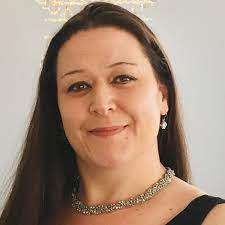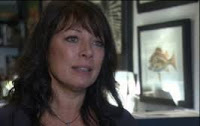Executive Director, Euthanasia Prevention Coalition
A Canadian woman, and mother of 3, who lived for 17-years with an undiagnosed chronic pain condition was considering MAiD but changed her mind after being diagnosed with a treatable medical condition.
This is a case of medical misdiagnoses in the sense that she had a treatable but undiagnosed medical condition.
A February 26 news story by Meredith Bond for CityTV News reported:
After 17 years suffering from chronic pain, Jennifer Monaghan (picture) began researching medical assistance in dying (MAiD), but a miracle diagnosis saved her life.
The 43-year-old has suffered from narcolepsy since she was 13 years old, but it wasn’t until years later that the pain started.
Narcolepsy is a neurological condition where a chemical is missing in the brain that controls if you’re awake or asleep. “Dealing with narcolepsy really didn’t bug me. I just worked around it. I managed it,” said Monaghan.
However, when she started feeling a shooting pain down her leg, that’s when everything changed. “It was really overwhelming because all of a sudden, life had to stop. And I was going to the doctors and trying to figure out what was wrong. And I didn’t know what was wrong.”
Bond explains that Monaghan began researching MAiD after 17 years of living with chronic pain:
Doctor’s visits weren’t a form of relief as they couldn’t tell Monaghan what was causing her pain. “Even many times throughout my journey of 17 years, I really did believe it was in my head. And that’s a really scary thing because I’m like, why am I creating all this pain and anger?”Monaghan may be alive today because she had hope that she would recover.
Finally 17 years into her pain journey, she started researching medical assistance in dying. “By that point, I was stuck in bed and I’d really had quite a low point where I just felt like I had tried everything, tested every product on the market, went to all the extra things like a chiropractor, a naturopath,” describes Monaghan. “I just tried everything I could and I just couldn’t get there and so that’s when I decided to consider medically assisted [death]”
“So I just focused most of my energy studying things, but then also studying the MAiD programme and medically assisted death and seeing what my options were,” said Monaghan.
Monaghan said despite her research into MAiD, she did always want to get better and held out hope. “No matter how dark it got, it was still there. And I thank God for it every day that I was still able to have that hope in a real place of darkness.”Monaghan received a diagnosis after 17 years of chronic pain:
She said throughout her pain journey, she visited several neurologists as Monaghan was convinced her pain had something to do with her nervous system.
“At the very end of that 17 years, I asked for one more neurologist appointment. I really wasn’t expecting much when I went there because everything else was always a dud.”
Once she described all her symptoms to the neurologist, she said he knew exactly what it was.
“Small fiber sensory neuropathy,” said Monaghan. “Basically, my brain is sending signals to different areas of my body, like shocking pain or cold water. It’s my brain reading the signals wrong, [the] pain signals wrong. So my brain thinks there’s all this pain going on, but my brain technically is creating it.”
“I was elated that I hadn’t lost my mind. I was so happy that this thing had a name and I didn’t give up. And I asked for that one more appointment.”
With a diagnosis and treatment in hand, Monaghan said her pain started getting less and less, until “the pain sensations started disappearing.”
Monaghan is happy to be alive. Her pain began to disappear and she became a grandma at about the same time. She said:
“I think the biggest thing is as soon as I got better, our children became parents and so I became a grandma. And it’s the best thing that’s ever happened to me. It is so nice to be able to spend time with them. Now, their children, I just feel so blessed, I feel super blessed that I got this opportunity and to this day, I won’t waste a minute of it.”Monaghan said she will continue to help others dealing with chronic conditions, regardless of what choices they decide to make.
She is now helping others who are living with chronic pain:
“When someone says, ‘How are you feeling?’ I can say I feel great and mean it. And I love my life now and I appreciate it in a completely different way.”
“My mission now is just to support people, regardless of whatever choices they’re making. For me, it doesn’t matter. They just need like acceptance in someone that listens. Listening is a really important tool to help anyone with a disease while they’re dying or in chronic pain.”
The article is missing the fact that had she been diagnosed many years earlier, that she would not have lived with chronic pain for 17 years and she would not have sought MAiD (euthanasia).
The question is - how many people are being killed by euthanasia who have been misdiagnosed or not diagnosed?
According to Brian Mastroianni who published an article in healthline.com on February 22, 2020 medical misdiagnosis is more common than you think. According to the data:
- In the United States, 12 million people are affected by medical diagnostic errors each year.
- An estimated 40,000 to 80,000 people die annually from complications related to misdiagnoses and a similar number of people will experience a permanent disability related to misdiagnosis.
More life and death stories related to medical misdiagnosis.
In October 2016 Mya DeRyan (picture) survived a suicide attempt. While recovering DeRyan learned that the terminal diagnosis that she was trying to escape from was in fact a wrong diagnosis.
In April 2013, Pietro D’Amico, a 62-year-old magistrate from Calabria Italy, died by assisted suicide at a Swiss assisted suicide clinic. His autopsy found that he was misdiagnosed.
Considering the data, it is dangerous and irresponsible to legalize euthanasia and assisted suicide. Many people, such as Jennifer Monaghan, live with undiagnosed chronic pain for many years. We need to change the healthcare system not kill the misdiagnosed patient.



3 comments:
"I just feel so blessed, I feel super blessed..."
Blessed...By Whom/What?
She is a mother of 3 and now a grandma and she expresses her happiness to be alive.
Why the question?
Alex:
You didn't see the irony in the comment...? Perhaps I miss speak.
However on the one hand she considers ending her life because of misdiagnosed condition and then feels 'Blessed' when she receives a correct diagnosis. Hence my comment. Will she revert to her previous intent if the 'misdiagnosis' turns out to be correct? Will she then cease feeling 'Blessed'?
Perhaps I place a more/too literal emphasis on the meaning of the word, Blessed. Only the Creator can Bless (and those he anoints) and that implies a belief in almighty God. Does her 'Belief/Faith' wax and wane, ebb and flow with how she happens to feel at a particular time.
I have no wish to be tough on the Woman, she has obviously been through a bit.
Feel free to edit my comments...Perhaps publish the 2nd Paragraph and omit the first or not publish anything, in deference to the Women concerned, either way we will
pray for her and her family .
Post a Comment